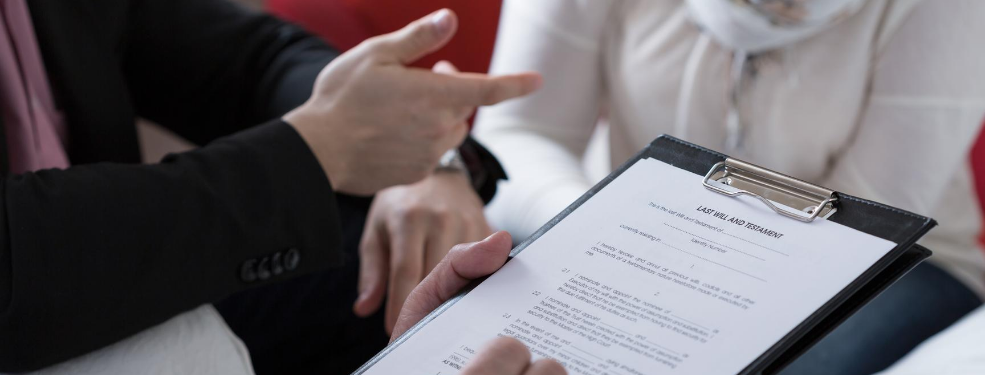With COVID-19 and other stories dominating the news this year, there has been an increased awareness around the world of how precious life and every moment with our loved ones is. Through experiences of loss and personal fear around the pandemic, more people have turned their attention to the future and planned for after their time by writing a will.
A will sets out the belongings, property and assets in your name and ensures by law that they are left to whomever you designate, in however way you wish. Death can come suddenly for anyone, and that’s why it’s sensible to have a will so that if the worst happens then your estate, no matter how big or small, will go to the people you care about.
One of the most important stages of creating a will, after you have thought about who you would like to benefit from it, is deciding who to appoint to manage what you intend to leave and carry out any other instructions. This person or persons who take this role are known as the ‘Executor’.
How to choose an Executor for your will
The Executor for your will doesn’t have to be a single person. In fact, it’s wise to choose two in case the one were to pass away before you. Then you would need to revise your will with a new Executor.
Up to four people can share Executor duties for a single will, although the more people there are the messier it might get in trying to carry out your wishes. Two is a reasonable, safe number of people to nominate.
Most commonly a person’s spouse, civil partner or children will be selected as Executor, while a professional such as a solicitor with expertise could be an Executor alongside a family member.
When choosing, you need to carefully consider if the person can be fully trusted and will be capable to look after the distribution of any assets in the wake of your death. This can deter some from selecting their other half as it will be a difficult enough time for them as well as having funeral arrangements to make. Executors must be at least 18 years old and so many will leave the responsibilities to any adult children, grandchildren or other younger relatives.
Dealing with beneficiaries and other family members can be an extremely tough task, so it is worth thinking about whether your Executor will be able to handle this being placed on their shoulders, and approach things in a sensitive manner. It can be helpful for them to also be comfortable sorting paperwork and legal issues, but this is where a solicitor can provide support.
The duties of the Executor of your will
Depending on the size of your estate when the time comes and how straightforward or not your will is, the less or more the Executor might have to do. It could include dealing with the following:
- Money, both cash and money in a bank or building society account. This could include money paid out on a life insurance policy
- Money owed to the person who has died
- Shares
- Property
- Personal possessions, for example cars or jewellery
It will be up to the Executor, who can be a beneficiary themselves, to arrange for the correct people named in the will to inherit what’s intended.
If there are bills still owed at the time you die then this money will be taken from your estate. If the estate does not cover outstanding debts, bills, tax and other expenses then this becomes a more complicated matter and the Executor should seek legal advice on what action to take.
What to do next when you know who should be your Executor
If the estate includes any property then the Executor may need to apply for probate, which is a legal document which gives them authority to distribute your possessions. Harry McPartland and Sons Solicitors also provide this service and subsequently can assist with any administrative tasks required through your will.
After contacting your local solicitor about writing a will, you will need to confirm with us the name and address of whoever you have agreed with to be your Executor. We will help make the rest as simple as possible for you and later them, so that the people that matter to you might be comforted and left that little bit more secure.

